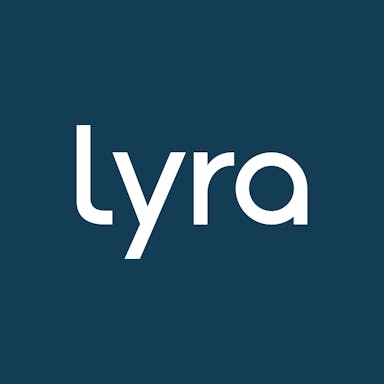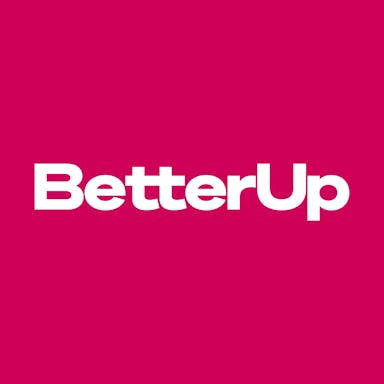Thesis
In the US, an estimated 26% of Americans ages 18 and older suffer from diagnosable mental disorders in a given year. Among American adults, an estimated 9.5% will suffer from depressive illnesses annually. Almost half of the 60 million adults and children living with mental health conditions do not receive any form of treatment, which speaks to a lack of accessibility to suitable care within the fragmented and costly mental health system. The challenge is exacerbated by the difficulty of finding mental health prescribers who accept insurance and the prevalence of out-of-network therapy usage, with one-third of 3K participants surveyed in 2016 responding that they were unable to locate an appropriate provider.
Meanwhile, employers are increasingly dissatisfied with inadequate mental health benefit providers. Even before the COVID-19 pandemic, depression and anxiety disorder alone contributed to $1 trillion in lost productivity worldwide annually. The pandemic further amplified mental health challenges, resulting in a 1.4% increase in spending from 2013 to 2020. In 2020, employers and employees collectively spent nearly $77 billion on mental health disorders, underscoring the financial burden associated with untreated mental health conditions. In a study of 2.5K employees and 250 employee benefits leaders in 2023, 86% of employees have faced at least one mental health challenge in the past year. This highlights the need for comprehensive mental health support solutions that addresses unique needs of individuals.
Lyra is a digital mental health platform that provides mental health benefits for employees. Through its platform, Lyra Health connects members to a network of therapists and coaches, offering various services to address personalized mental health needs. Lyra offers a blended care model that combines therapist visits with online resources to help its customers’ employees more easily access mental health resources.
Founding Story
David Ebersman (CEO) founded Lyra in 2015. After leaving his position as Chief Financial Officer at Meta in 2014, Ebersman noticed a lack of support and resources in the mental health space when trying to find treatment for a close family member. During his search, he explored two different options, but neither option was helpful and they gave up. Then, about a year later, just by word of mouth, Ebersman was able to find a psychologist who highlighted the significance of receiving the right care and the value of a personalized approach for different individuals.
Ebersman got the inspiration to start his own business during a dinner conversation with a healthcare leader from a large purchasing company who expressed enthusiasm for Ebersman’s idea when he was told about it, helping Ebersman overcome his fear of starting a business. This led to the development of Lyra’s platform, which aimed to connect providers with consumers based on their unique needs rather than relying on static search engine results.
As Ebersman said in 2022:
“It wasn’t that we had a great product yet or even knew what we were going to build, he just wanted something different in this space. To find someone who was really well connected and thought about this a long time expressing such desire to see innovation in the [behavioral health] space felt like a sign. That gave me the last piece of courage I needed to get started.”
Product
Lyra is a mental health provider and software platform. The platform uses software to connect members with a network of therapists and coaches. Lyra adopts a “blended care” model which offers a range of care options, including in-person sessions, live video consultations, live messaging support, and self-led resources.
Therapy and Counseling Services
Through Lyra, users have access to one-on-one sessions with licensed therapists, addressing mental health concerns and providing tailored support. Lyra’s therapy services include couples and family therapy. Additionally, therapeutic group sessions are available which are meant to provide social support for individuals with similar challenges or goals. To guide users on their mental health journey, Lyra has an in-house concierge care navigation team that assists with evaluating care facilities, evidence-based program selection, and answering questions through text messaging. Appointments are offered remotely or in-person.
Specialized Mental Health Services
Lyra offers personalized coaching and support services to help individuals overcome mental health challenges. These sessions are designed for patients with mild symptoms that do not meet the criteria for a clinical diagnosis, which makes them preventive treatments. The provider network includes psychiatric services, offering evaluations, medication management, and one-on-one messaging with mental health physicians. These physicians prescribe evidence-based medications, monitor symptoms and side effects, and provide ongoing support to members. At the enterprise level, Lyra offers a range of Employee Assistance Program (EAP) services, including critical incident support, financial and legal services, ID theft services, and assistance with child, elder, and pet care.
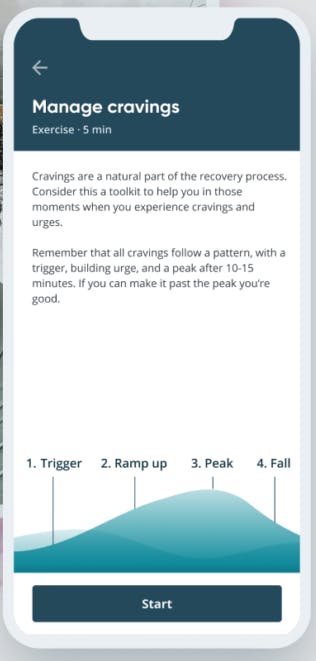
Source: Lyra
Digital Health Solutions
Lyra also provides teletherapy options, allowing users to access therapy sessions remotely through secure online platforms. Members can even engage in guided self-care, collaborating with a coach to create a personalized, six-week digital care plan. They can work through the plan at their own pace and maintain continuous communication with their coach. Lyra also offers a library of research-based self-care resources, featuring skill-building videos, meditations, and other activities to support members’ mental well-being.
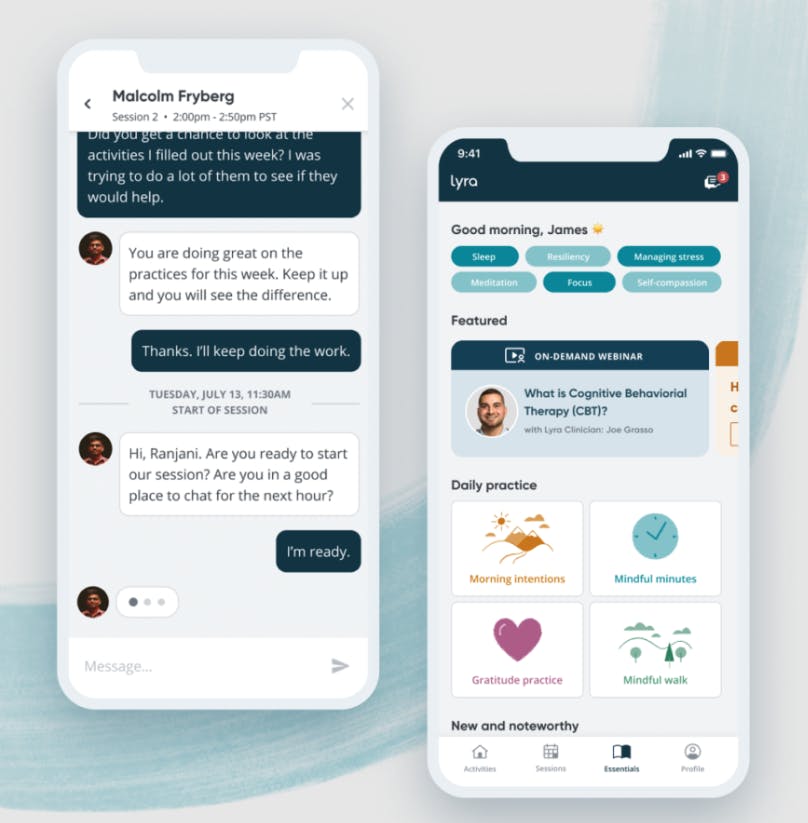
Source: Lyra
Additional Support and Resources
One notable offering from Lyra is Dialectical Behavior Therapy (DBT), specifically designed for individuals struggling with suicidal tendencies and self-harm. Lyra provides 24/7 on-call DBT support, connecting members with experienced DBT experts through both one-on-one and group sessions. The company also offers clinically-validated assessments, such as the patient health questionnaire (PHQ-9) for depression severity measurement and the general anxiety disorder 7 questionnaire (GAD-7) for anxiety disorder screening. These assessments enable users to accurately track their clinical progress and determine the appropriate level of care.
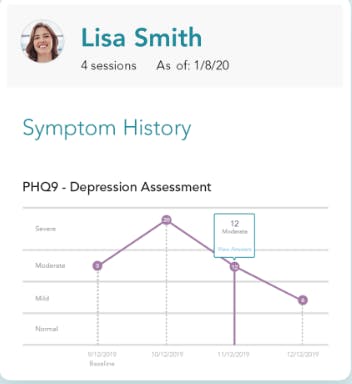
Source: Lyra
Market
Customer
Lyra’s target customers include employers seeking to provide mental health benefits for employees for the first time, or looking to replace inefficient EAP systems already in place. Lyra's client base consists of employers in various corporate industries seeking to offer comprehensive mental health resources to their workforce. The company primarily targets large enterprises, as it believes they represent untapped opportunity. Notable companies using Lyra’s platform include Meta, Starbucks, eBay, Genentech, Uber, Pinterest, Morgan Stanley, Zoom, and Lululemon. Lyra also has plans to target other customer segments after 2025, including expansion to new international markets, targeting more SMBs, and selling to government-funded health plans.
Market Size
In the US, the behavioral health market was valued at $79.7 billion in 2022, with a CAGR of 4% until 2028. This is attributed to growing demand for mental health management in institutions. In 2020 alone, investors poured over $1.5 billion into mental health startups due to a record increase in anxiety and depression among the general population, with a. In 2019, one in every eight people were living with a mental disorder, translating to 970 million people worldwide. This number may rise due to the accelerating pace of change, with 68% of adults worldwide believe AI will contribute to mental health problems.
Competition
Modern Health: Founded in 2017, Modern Health is a mental health wellness platform that enables companies to manage their employees’ health benefits. The platform combines a WHO well-being assessment, self-service wellness kits, and access to a global network of certified coaches and licensed therapists for employees. The company has raised $167.4 million in total funding as of June 2023 from investors such as Battery Ventures, Lachy Groom, Founders Fund, and Kleiner Perkins. Notable clients include Lyft and Pixar.
Spring Health: Spring Health is a personalized healthcare platform for employee well-being. The platform uses machine learning to understand users’ conditions, and generates a care plan personalized to their needs. Spring Health was founded in 2016 and has raised $366.5 million in total funding as of June 2023 from investors like RRE Ventures, Kinnevik, Tiger Global Management, and Able Partners. Both Spring Health and Lyra have service offerings tailored to address preventative care needs, such as substance abuse and OCD management. Spring Health’s client base include Microsoft and The Hershey Company.
Ginger: Ginger is a company focused on mental health that offers 24/7 access to emotional support through coaching, therapy, and psychiatry. Similar to Lyra, Ginger’s platform is exclusively accessible to individuals whose employers have partnered with the company. Ginger was founded in 2011 and has raised $220.7 million prior to merger by Headspace Health in 2021. When users sign up, they are matched with an “emotional coach.” These coaches are professionals in training to become licensed therapists, and offer strategies for small emotional needs such as stress management and goal tracking. Consequently, if a user sends a message to their coach outside of the scheduled shift, a new coach will be assigned. Ginger also provides extra support options for users for $119, where users can talk with licensed professionals. Notable clients include BuzzFeed, Sephora, Chegg, and Accolade.
Talkspace: Talkspace is a behavioral healthcare platform enabling one-on-one therapy that connects users with therapists, psychologists, and psychiatrists through video, audio, and SMS messaging. Unlike Lyra, Talkspace also provides psychiatry resources for users. The company focuses on individual therapy, while Lyra focuses on employee wellness. Talkspace was founded in 2011 and received $413.7 million in funding. Notable past investors include Spark Capital, SoftBank, Metamorphic Ventures, and Norwest Venture Partners. The company went public in June 2021. Online therapy services can be divided into four main areas: general online therapy, couples therapy, teen therapy, and psychiatry.
Business Model
Lyra’s main source of revenue is from organizations that pay for Lyra’s platform and services through customized benefits configurations. An individual is unable to access the Lyra platform unless their employer has paid for it. Lyra provides 16 free sessions per member per year, depending on the custom plan chosen by the employer. It does not publicly disclose its pricing.
Lyra employs its own therapists and partners with behavioral health providers, which is a cost for the business as they pay these therapists to provide the consultation and services for customers. People who have the necessary licensed requirements can sign up to be full-time therapists, physicians, and coaches. Providers choose their own schedule and must undergo Lyra’s pressure test prior to working with clients.
Traction
Lyra has a 13% enrollment rate among employees within their first year of employment. In 2019, the company’s network of therapists grew by more than 60% from the previous year. In 2021, Lyra announced a partnership with ICAS, a global EAP provider. This partnership supports the company in its efforts to expand its global strategy. As of June 2023, Lyra’s platform has more than 2 million members, with 5K coaches, therapists, and doctors within the US alone and 85K providers worldwide in 180 countries through partnerships with institutions.
Since its founding, more than 300 companies have partnered with Lyra to provide mental health benefits for their respective employees. Notable enterprise customers include Meta, Starbucks, eBay, Genentech, Uber, and Pinterest. While revenue earnings are not publicly disclosed by the company itself, Ebersman stated in June 2021 the company “significantly exceeded” an earlier Forbes estimate of $100 million by the end of 2020. The Journal of Medical Internet Research revealed that in a study of 385 Lyra patients, 83% of participants improved their anxiety or depression over a six week time frame through using the platform’s blended model. However, this was not a randomized clinical trial.
Valuation
Lyra’s latest round of funding as of July 2023 was a $235 million round in January 2022, led by Dragoneer Investment Group, which valued the company at $5.6 billion. Other participants in the round included Salesforce Ventures and Coatue. The company intends to use the funding to fuel its international expansion. As of June 2023, Lyra has raised a total of $910.1 million.
Key Opportunities
International Expansion
As of June 2023, North America remains the largest market for the global behavioral health market, with 49% market share by revenue. While Lyra continues to build traction with its enterprise client base, the company began expanding operations internationally in 2021 through a partnership with ICAS. This presents new opportunities for the company to expand into new geographic markets, as 51% of the global behavioral market outside of North America remains uncapitalized. However, Lyra’s services are also only available in English as of 2023. By providing its services in various languages, Lyra has the potential to enter international markets.
Accessibility
Lyra has continued to grow through partnerships with institutional clients. The company’s services are exclusively available to individuals whose employers are registered partners. By comparison, Lyra’s competitor Modern Health caters to both individuals and companies alike. Expanding the accessibility of Lyra’s services to the general public could be a potential source of growth and could be accomplished through the implementation of a new pricing structure, such as a flat-rate or user-based pricing SaaS model. This would involve charging people on a monthly or yearly basis if they are not affiliated with a Lyra partner organization, or based on their level of service utilization.
Diversification of Service Offerings
As of June 2023, Lyra’s platform exclusively offers therapy and counseling services. To enhance its appeal and reach a broader range of demographics, Lyra has the potential to expand its service offerings beyond therapy by incorporating additional mental health services. The company could consider launching specialized services that cater to specific domains of psychotherapy, encompassing six distinct types: behavioral, cognitive, interpersonal, psychoanalysis, psychodynamic, and supportive approaches.
Key Risks
Competitive Landscape
In the past ten years, over 1.2K companies dedicated to digital health have attracted $33 billion in investment. The first quarter of 2021 witnessed a surge in deals exceeding $100 million for digital health enterprises, surpassing the combined figures for both 2018 and 2019. The growth of the industry has captured the attention of large tech companies, prompting their participation in funding rounds, mentorship, and management for startups offering digital health solutions. Notably, Amazon’s cloud division introduced a healthcare accelerator program in 2021 aimed at empowering early-stage companies to leverage AWS’ extensive technical resources and commercial expertise. Consequently, the landscape of the digital health market has become increasingly competitive. With numerous players vying for funding opportunities, diversification of product and service offerings has become increasingly challenging.
Privacy and Data Security
Operating in the healthcare industry, Lyra is obligated to comply with the Health Insurance Portability and Accountability Act of 1996 (HIPAA). While the company has outlined its data practices in a comprehensive 5K word privacy policy statement, it has faced scrutiny and received criticism from former therapists concerning its ethical conduct. In February 2022, former therapists accused Lyra of implementing a bonus model that, despite its initial aim to provide financial incentives, allegedly resulted in harm to patients by facilitating a rapid turnover of cases. Lyra has chosen not to provide explicit details about its current practices for disclosing outcomes data to patients, particularly regarding data sharing with employers.
Summary
Lyra is a mental health provider and software platform that uses a blended care model to connect members to therapists and coaches, offering personalized treatment plans intended to make mental healthcare more accessible. The company focuses on collaborations with employers, targeting large enterprises, to deliver comprehensive mental health support to their employees. With notable clients like Starbucks and Uber, Lyra’s platform connects users with therapists and offers a range of care options, including in-person sessions, teletherapy, messaging support, and self-led resources.
